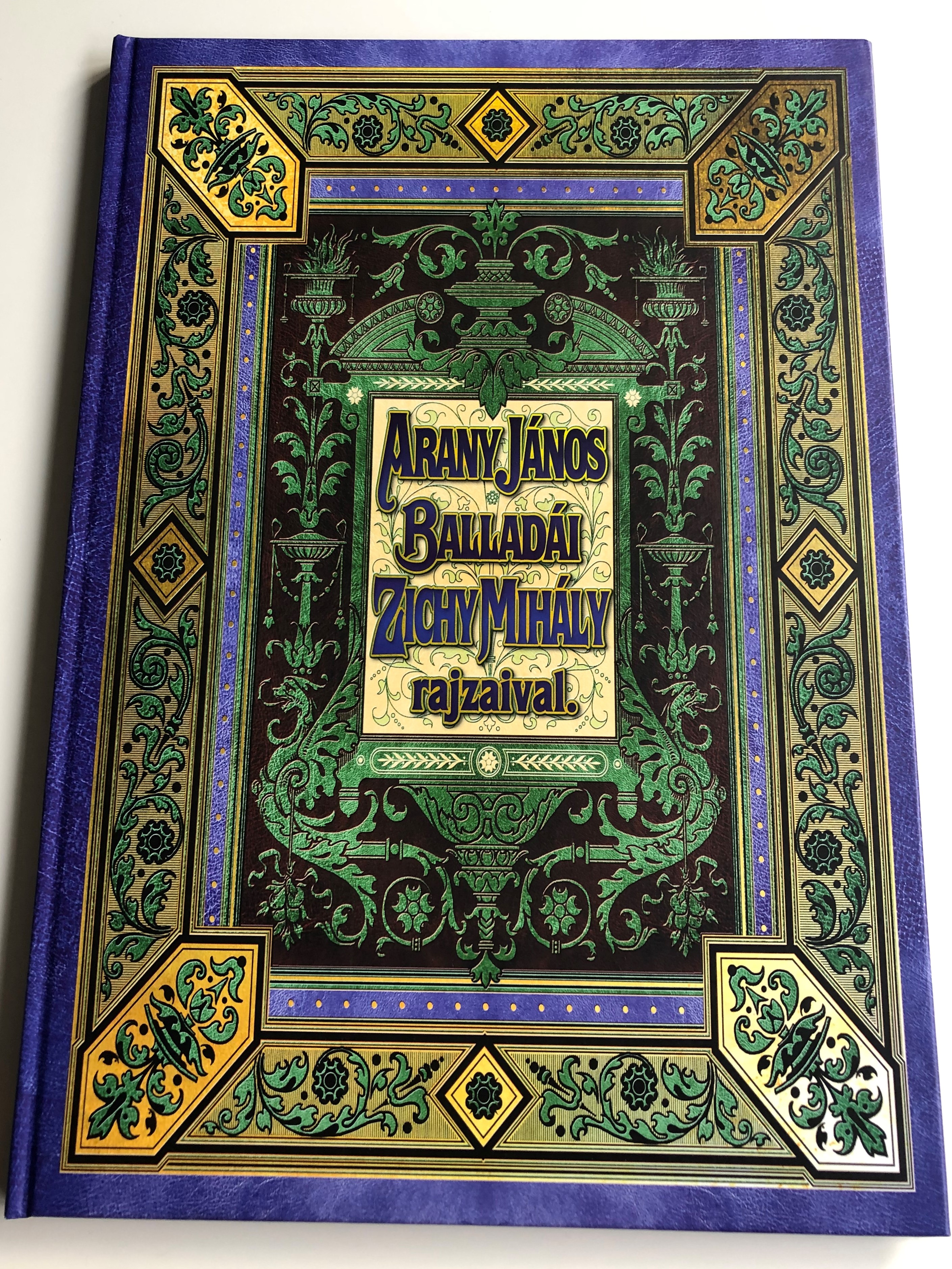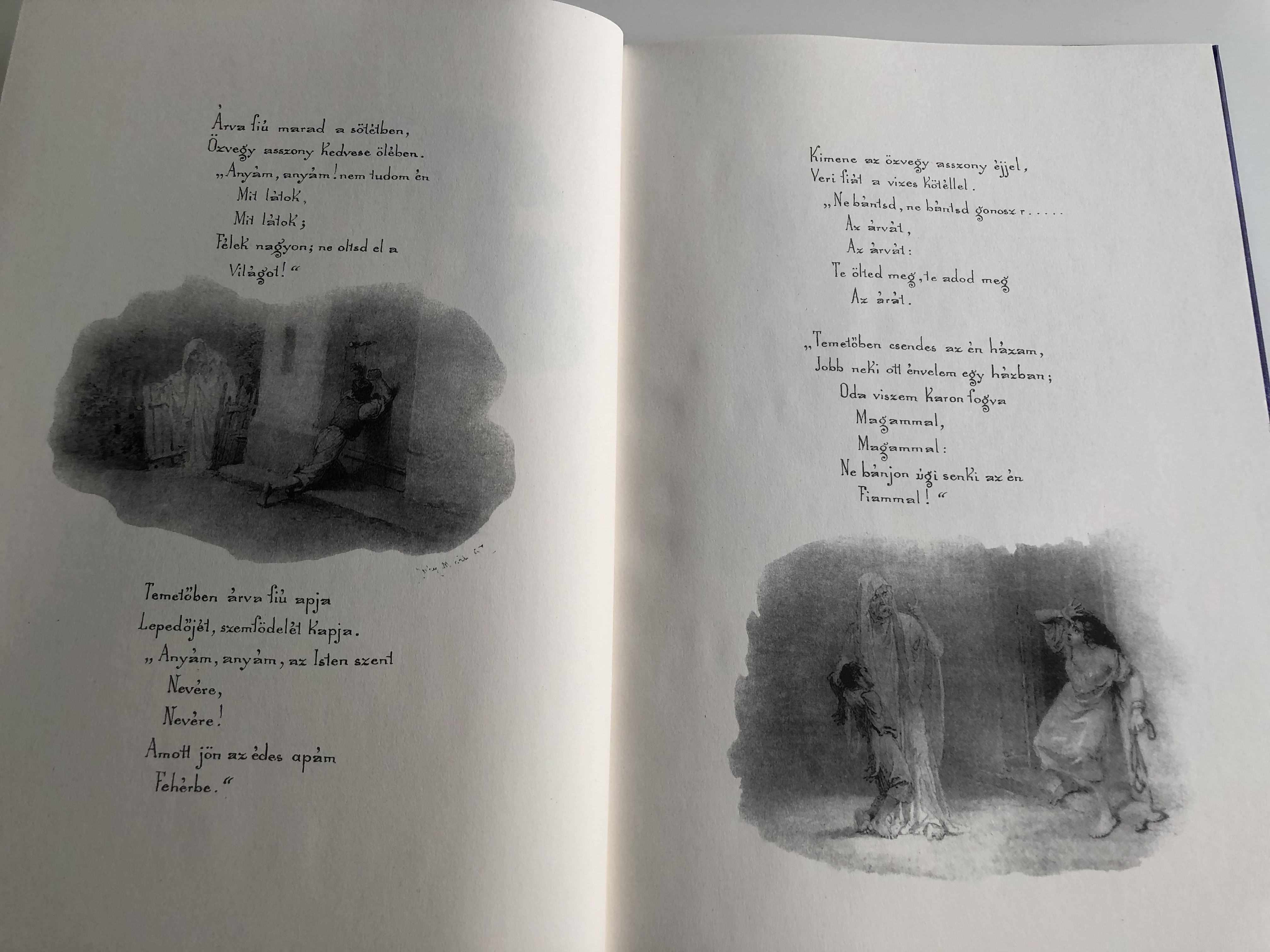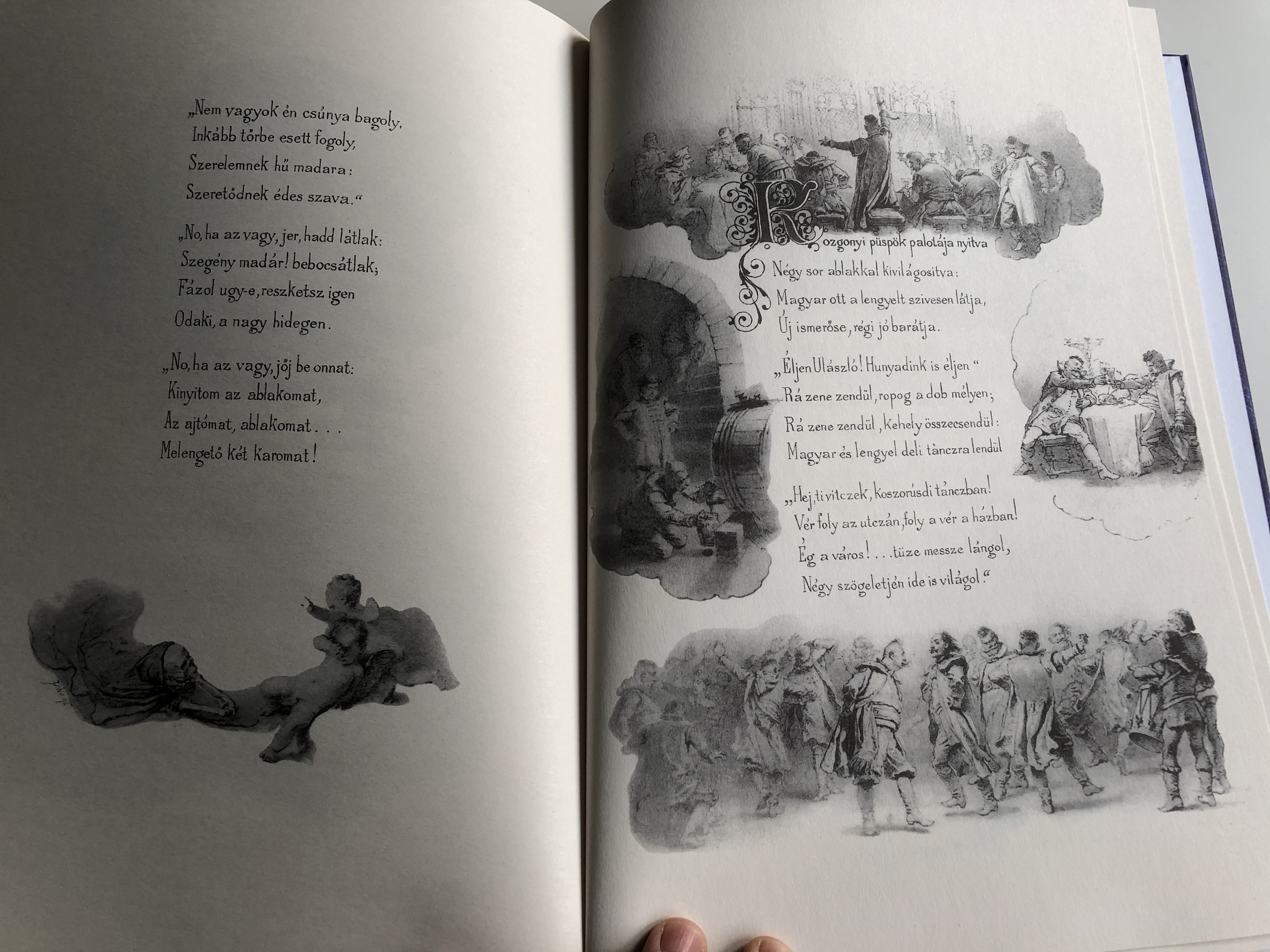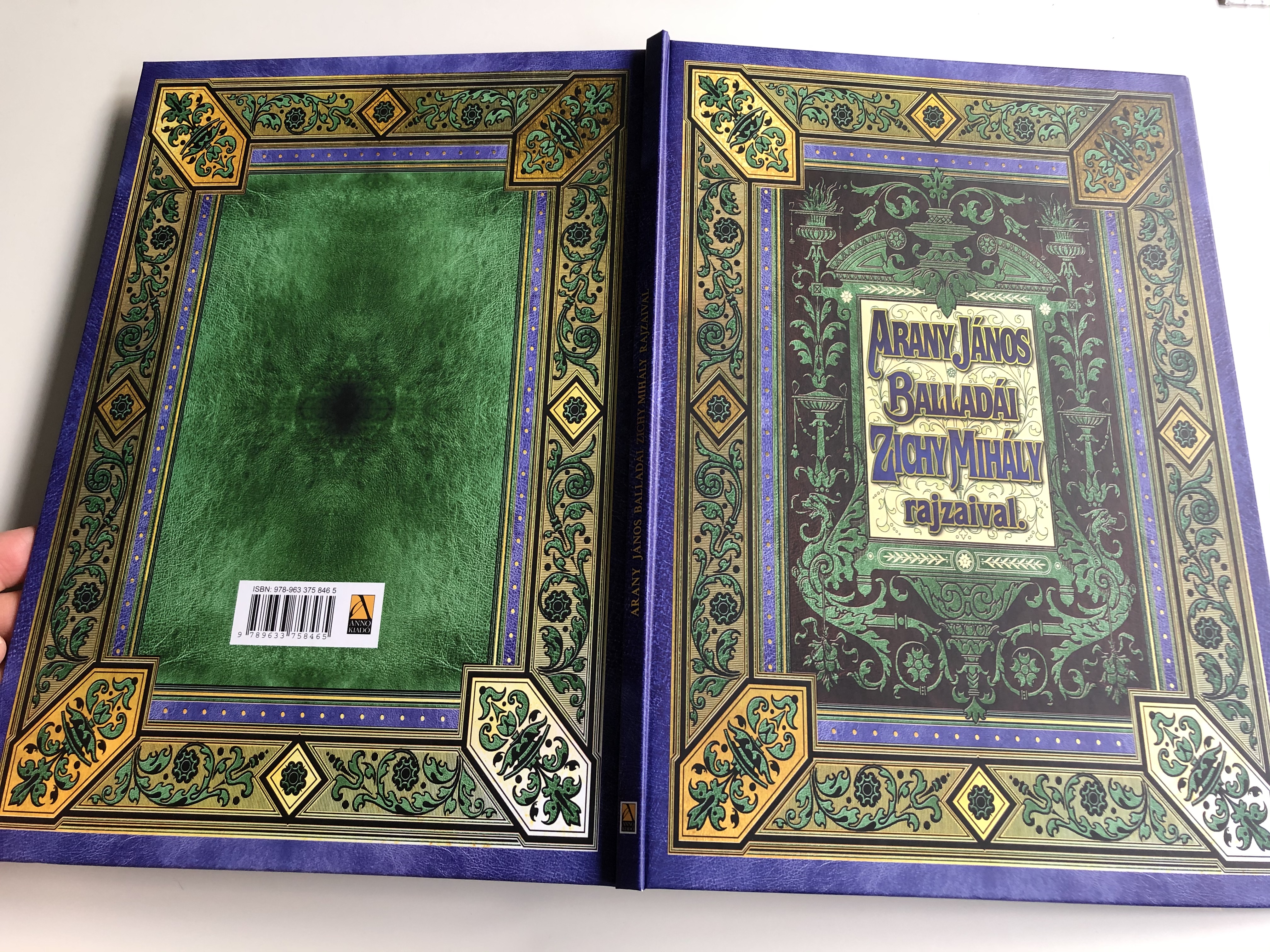Description
Arany János Balladái Zichy Mihály Rajzaival | A Timeless Tribute to Hungarian Literature and Art
Product Information
ISBN: 9789633758465 / 978-9633758465
ISBN-10: 9633758467
Product Type: Hardcover Facsimile Edition
Genre: Poetry, Literature, Art
Language: Hungarian / Magyar
Pages: 44
Publication Date: 2000
Publisher: Franklin-társulat - Anno kiadó
Overview
Arany János Balladái Zichy Mihály Rajzaival is a beautifully crafted facsimile edition of the original 1896 publication, celebrating the poetic genius of János Arany , one of Hungary’s most revered literary figures. This edition pairs Arany’s evocative ballads with the stunning illustrations of Mihály Zichy , a renowned Hungarian artist whose work captures the emotional depth and drama of Arany’s verses.
This hardcover book is not only a collector’s item but also a testament to Hungary’s rich cultural heritage. It offers readers a glimpse into the symbiotic relationship between literature and visual art during the late 19th century. Each page is meticulously reproduced to preserve the authenticity of the original print.
Hungarian Translation - Overview (Attekintés)
Az Arany János balladái Zichy Mihály rajzaival egy gyönyörűen megtervezett fakszimile kiadás az eredeti 1896-os kiadványból, amely emléket állít János Arany irodalmi zsenijének, aki Magyarország egyik legtiszteltebb irodalmi alakja. Ez a kiadás Arany hatásos balladáit párosítja Mihály Zichy lenyűgöző illusztrációival, egy híres magyar művész munkájával, akinek alkotásai tökéletesen megjelenítik Arany verseinek érzelmi mélységét és drámáját.
Ez a keményborítós könyv nemcsak gyűjtődarab, hanem Magyarország gazdag kulturális örökségének bizonyítéka is. Betekintést nyújt az irodalom és a vizuális művészet közötti szimbiózisba a 19. század végén. Minden oldal gondosan reprodukálva van az eredeti nyomtatás hitelességének megőrzése érdekében.
Product Features
- Format & Dimensions: Hardcover, durable and elegant design ideal for collectors and libraries
- Page Count: 44 pages
- Content Highlights: Facsimile reproduction of the original 1896 edition, featuring ballads by János Arany and illustrations by Mihály Zichy
- Special Features: High-quality paper and printing to replicate the texture and appearance of the original publication
- Target Audience: Literature enthusiasts, art lovers, historians, and collectors of Hungarian cultural works
Interesting Facts
The Literary Genius of János Arany
- János Arany (1817–1882) is considered one of Hungary’s greatest poets, known for his narrative ballads and epic poems. His works often explore themes of heroism, tragedy, and national identity.
- This collection includes some of his most famous ballads, such as "A walesi bárdok" (The Bards of Wales) and "Toldi." These works remain central to Hungarian literary education and cultural identity.
The Artistic Vision of Mihály Zichy
- Mihály Zichy (1827–1906) was a celebrated Hungarian painter and illustrator whose works often depicted historical and literary themes. His illustrations for Arany’s ballads are considered masterpieces of 19th-century Hungarian art.
- Zichy’s drawings bring Arany’s words to life, adding a visual dimension that enhances the emotional impact of the poetry.
A Collector’s Treasure
- This facsimile edition is a faithful reproduction of the 1896 print, preserving the original typography, layout, and artwork. It is a must-have for anyone interested in Hungarian literature, art, or history.
Hungarian Translation - Interesting Facts (Érdekes Tények)
Arany János Irodalmi Zsenialitása
- Arany János (1817–1882) Magyarország egyik legnagyobb költőjének számít, aki narratív balladákért és epikus verseiért ismert. Művei gyakran a hősieskedés, tragédia és nemzeti identitás témáit járják körül.
- Ez a gyűjtemény néhány legismertebb balladáját tartalmazza, mint például a "Walesi bárdok" és a "Toldi." Ezek a művek ma is központi szerepet játszanak a magyar irodalmi oktatásban és kulturális identitásban.
Zichy Mihály Művészeti Látomása
- Zichy Mihály (1827–1906) egy elismert magyar festő és illusztrátor volt, akinek munkái gyakran történelmi és irodalmi témákat ábrázoltak. Illusztrációi Arany balladáihoz a 19. századi magyar művészet mesterműveinek számítanak.
- Zichy rajzai Arany szavait életre keltenek, hozzáadva egy vizuális dimenziót, amely megerősíti a poézis érzelmi hatását.
Gyűjtők Kincse
- Ez a fakszimile kiadás a 1896-os nyomtatás hű reprodukciója, megőrizve az eredeti tipográfiai stílust, elrendezést és művészeti elemeket. Egy olyan darab, amely nélkülözhetetlen mindenki számára, aki érdeklődik a magyar irodalom, művészet vagy történelem iránt.
Publishers
Published by Franklin-társulat - Anno kiadó in 2000. All rights reserved under ISBN 9789633758465 .
We value your feedback! Share your experience with this product to help others make informed decisions. Your review is important to us!
Hashtags
English:
#JánosArany #MihályZichy #HungarianLiterature #FacsimileEdition #Ballads #HungarianArt #CulturalHeritage
Hungarian (Címkék):
#JánosArany #MihályZichy #MagyarIrodalom #FakszimileKiadás #Balladák #MagyarMűvészet #KulturálisÖrökség
Tartalom / Contents:
| Árva fiú | |
| Rozgonyiné | |
| Vörös Rébék | |
| Szibinyányi Jank | |
| Tengeri hántás | |
| Egri leány |








































